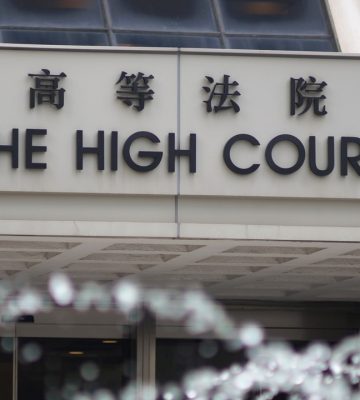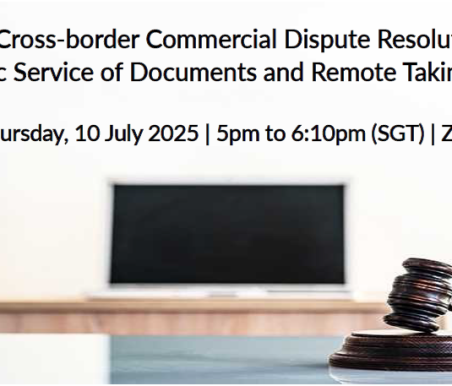ABLI has recently learnt of a judgment dated 22 March 2023 in which the High Court in Malaya (High Court) rejected an originating summons (OS) to enforce two judgments from the People’s Court of Putuo District, Shanghai and the Second Intermediate People’s Court of Shanghai (Shanghai Judgments). China is not a country gazetted in the First Schedule to the Reciprocal Enforcement of Foreign Judgment Act 1958 (REFJA).
Background
In OS No: WA-24NCvC-800-03/2022 (parties’ names redacted), the High Court was asked to enforce the Shanghai Judgments where the Defendant (the respondent to the OS) was ordered to repay loans given to him by the Plaintiff (the applicant of the OS) under two loan agreements, plus interest accrued and case acceptance fees of the Shanghai courts. Both the Plaintiff and the Defendant are Malaysian nationals.
Reasoning
After examining the Shanghai Judgments, the High Court found that
- the Shanghai Judgments were orders for the payment of specific sum of money that was definite and final;
- the Shanghai courts were courts of competent jurisdiction because the parties have contractually agreed to submit to their jurisdiction and have chosen Chinese law as the governing law of the loan agreements, and no exceptional circumstance has been established by the Defendant such that the High Court would not hold the parties to their contractual bargains on the choice of forum and the choice of law;
- the Shanghai Judgments were not against the public policy of Malaysia. The High Court is minded that the public policy ground must be construed narrowly and is only engaged where enforcement would “shock the conscience or be clearly injurious to the public good”. The Defendant raised three public policy grounds, i.e., procedural difference between China’s inquisitorial legal system and the adversarial system of Malaysia; the loan agreements being illegal moneylending viewed under Malaysian law; and interest rates imposed by the Shanghai courts exceeding the maximum allowed in Malaysia. All these grounds were dismissed. and
- the Shanghai Judgments were not obtained by fraud and were not subject to any other breach of natural justice. The High Court dismissed arguments raised by the Defendant which included, among others, that the Shanghai Judgments were tainted by the vice president of one of the Shanghai courts being under investigation and that the Defendant’s ability to defend itself was prejudiced because China’s inquisitorial legal system does not allow for oral examination of witnesses.
Nevertheless, the High Court still rejected the OS as it found issues with proof of the Shanghai Judgments.
Specifically, when the Plaintiff filed this OS, the binding authority was that when the parties do not dispute the existence or the contents of a foreign judgment, the foreign judgment can be admitted as evidence of itself. Based on this authority, the Shanghai Judgments as initially presented by the Plaintiff would have been admitted as evidence. However, in February 2023 while submissions of the current OS were ongoing, the Federal Court of Malaysia overturned the previous authority. Subsequently, the Plaintiff, among others, sought leave to admit a further affidavit to the Shanghai Judgments, to which the Defendant objected. The High Court refused to grant leave because doing so would be to allow the Plaintiff to “steal the march” from the Defendant.
With leave not granted, the High Court examined the Shanghai Judgments presented by the Plaintiff. Based on the latest Federal Court authority, the Shanghai Judgments, which are public documents under the Evidence Act 1950 (EA), must adhere to section 78 (re proving photocopies of foreign judgments as official/public documents) or section 86 (re proving photocopies of foreign judgments as copies of judicial records) of the EA before they can be admitted into evidence and used by the court.
As the Shanghai Judgments were not proved in the manner required by relevant sections of the EA, the High Court refused to allow the OS, although it said it would have accepted the Shanghai Judgments prior to the Federal Court’s decision.
Commentary
Two main takeaways could be gleaned from the High Court decision.
First, although the High Court rejected the OS, it went through all the usual considerations in an application for enforcement of a foreign judgment at common law, such as that the foreign judgment must be a monetary judgment, that the court of origin must be competent, that the foreign judgment is not against public policy and that there is no breach of natural justice. The Shanghai Judgments were found to have cleared the bar on all those fronts.
Second, it is now imperative for a party applying, at common law, to enforce in Malaysia a foreign judgment from a jurisdiction not included in the First Schedule to the REFJA to make sure that the foreign judgment is proved as such under s78 or s86 of the EA. Failure to do so will make the application fail.
More about ABLI’s work on the recognition and enforcement of foreign judgments in Asia can be found here and here.
Whilst every effort has been made to ensure that the information contained in this update is correct, the Asian Business Law Institute disclaims all liability and responsibility for any error or omission in this update, and in respect of anything, or the consequences of anything, done or omitted to be done by any person in reliance, whether wholly or partially, upon the whole or any part of the contents of this update.






![[Interview] Landmark Indonesian Recognition [Interview] Landmark Indonesian Recognition](https://abli.asia/wp-content/uploads/elementor/thumbs/Interview-Landmark-Indonesian-Recognition-r77cnxow0ude3j2mxz2wbivxrofvqnqg7fg3rw1zx0.jpg)